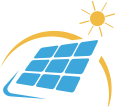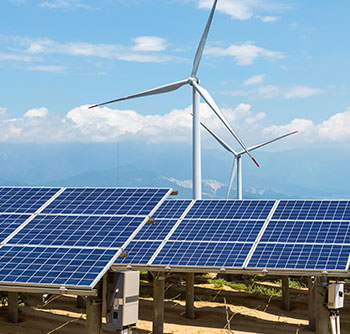Renewable and sustainable energy sources are becoming increasingly crucial for our planet. The amount of energy we consume is growing every day, and we must look for ways to replace traditional fossil fuels with more environmentally friendly alternatives. Renewable and sustainable energy sources offer an opportunity to reduce emissions and protect our environment from further damage caused by conventional energy sources. This article will discuss why renewable and sustainable energy sources are essential and how we can use them to power our lives.

Renewable Energy Sources
Renewable energy sources are the ones that can be replenished naturally, such as solar, wind, geothermal, hydroelectricity, and bioenergy. Solar energy is generated by harnessing the power of the sun’s rays to generate electricity. Wind energy works similarly to solar, but instead of sunlight, turbines capture the wind’s kinetic energy and convert it into electricity. Geothermal energy is harnessed from the heat inside the Earth, while hydroelectricity uses moving water to generate power. Finally, bioenergy is generated by burning biomass such as wood or crop waste.
The Advantages of Renewable and Sustainable Energy
Renewable and sustainable energy sources offer numerous advantages over traditional fossil fuels. The followings are a list of some of their benefits:
- Renewable energy sources are renewable, meaning they can be replenished indefinitely without running out. This makes them a more sustainable option than fossil fuels which are finite resources and will eventually run out.
- Renewables also produce fewer carbon emissions than traditional fossil fuels, making them an essential part of any climate change mitigation strategy.
- The cost-effectiveness of renewable energy has also improved in recent years, making them a more viable option for many households and businesses.
- Renewables can also create more jobs than traditional energy sources, requiring more people to install and maintain them.
- Renewables can help reduce electricity bills in the long run as they are often cheaper to produce than traditional fossil fuels.
- Renewable energy also provides health benefits since it does not give off pollutants like traditional energy sources.
- Finally, renewables can help secure energy supply in times of crisis as they are more reliable than traditional sources, which can be subject to disruption due to natural disasters or political turmoil.
The Limitations and Challenges
Despite their numerous advantages, renewable energy sources still have limitations and challenges. The followings are some of the most common:
- Renewables can be expensive in terms of upfront costs due to installation and maintenance requirements.
- Their efficiency levels can also vary greatly depending on environmental conditions such as weather or geography.
- Renewables are also subject to fluctuating prices due to the unpredictability of their supply.
- The storage and transportation of renewable energy can also be challenging, as it is often difficult to store or transport large amounts of energy over long distances.
- Finally, some renewable sources, such as solar and wind power, can be affected by environmental changes and, therefore, will require constant monitoring.
Conclusion
Renewable and sustainable energy sources are essential to the fight against climate change. They offer numerous advantages over traditional fossil fuels. However, they also come with their own set of challenges that must be addressed to ensure their successful use in the future. With more research and investment, renewable energy can continue to improve and become an even more valuable part of our lives.





